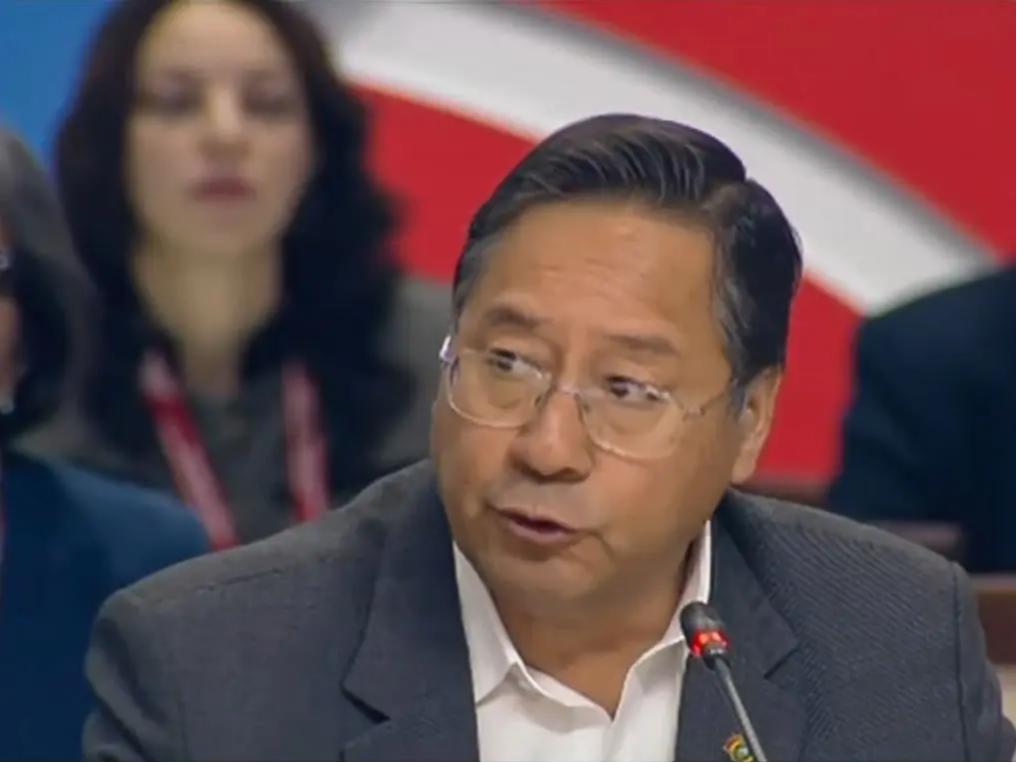The president of Bolivia, Luis Arce Catacora, participated this Thursday, October 24, in the XVI expanded BRICS Summit, which is being held in Kazan, Russia.
In his speech, Arce highlighted the importance of creating a new multipolar world order and noted that this forum represents a unique opportunity for developing countries to break with the Western economic and political hegemony, led by the United States and its control through the dollar.
He also stressed the importance of multipolarity and the reform of international institutions to achieve greater equity and justice.
After thanking his Russian counterpart, Vladimir Putin, for the invitation to the summit and highlighting the hospitality received in Kazan, the Bolivian president stressed that BRICS represents “a new dawn” that announces the end of the Bretton Woods system, which has dominated global economic relations since 1945, mainly favoring Western powers.
“BRICS is tangible proof of the possibility of creating a new, more balanced and fair world order,” said Arce, who also stressed that the consolidation of this multilateral bloc opens a space for the countries of Asia, Africa and Latin America to advance towards joint and equitable development.
The president stressed that global control based on the US dollar has limited the progress of developing countries, creating a “straitjacket” that has benefited only a few. “The hegemony of the dollar must end,” said Arce, in line with the position of other BRICS leaders.
He also pointed out that the emerging multipolarity is a natural and necessary response to this domination, and represents the freedom of peoples and nations that have been historically marginalized.
Along the same lines, the head of state of the Andean country called for international financial institutions, such as the International Monetary Fund (IMF) and the World Bank, to be reformed so that they more equitably reflect the demands of developing countries.
These institutions, according to the president, must adjust to the new geopolitical reality and allow for broader participation of emerging countries in global decision-making.
He added the importance of the BRICS New Development Bank (NDB) as a key tool to finance projects in developing countries such as Bolivia, which seek to advance in their industrialization process. “The NDB is essential for financing initiatives that promote equitable and sustainable development,” added the president.
During his speech, Arce highlighted Bolivia’s strategic role on the international stage, stressing that his country has the largest lithium reserve in the world, as well as significant reserves of natural gas, minerals and rare earths.
“We are in a process of industrialization that aims to benefit not only Bolivia, but also our partners in the BRICS,” said the president, who sees the bloc as a platform to establish alliances that promote shared development.
This strategic situation pointed out by the Bolivian president was contextualized within global challenges, such as growing inequalities and armed conflicts, pointing out that multipolarity offers a solution to these problems.
In this regard, Arce emphasized the case of the economic blockade of Cuba and the conflict in Palestine, reiterating Bolivia’s commitment to peace and the self-determination of peoples.
“It is imperative that the BRICS position itself as a key player in the construction of a more just world, where decisions are not monopolized by a few,” said the Bolivian president, stressing the importance of translating the summit’s decisions into concrete actions.


